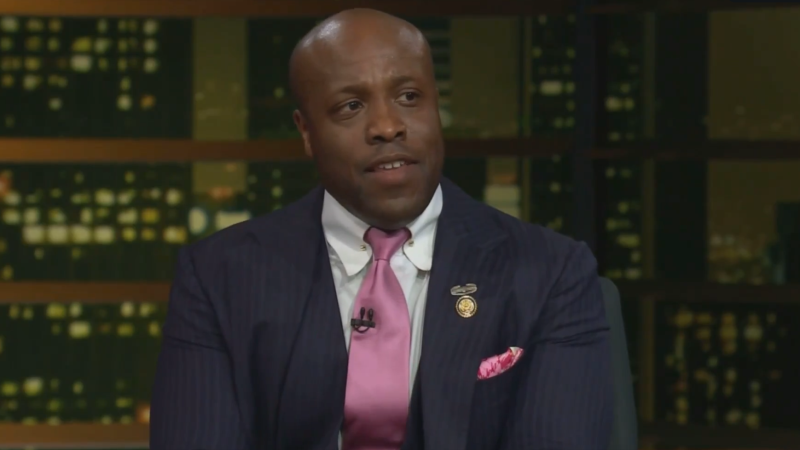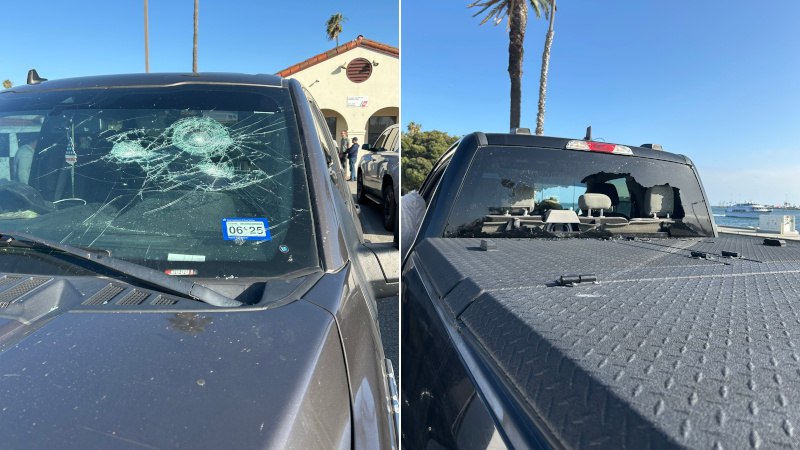 Image Credit: Jeremy Poland / Getty Images
Image Credit: Jeremy Poland / Getty Images What happens when the cartels start launching drones over the U.S.-Mexico border?
What happens when those drones are used to attack U.S. Border Patrol (USBP), law enforcement, or even civilians? Or if they are used to carry large amounts of fentanyl, which unfortunately only a very small amount is even needed to kill thousands of people? What happens if the cartels form alliances with other foreign adversaries and are used as de facto proxy terrorist agents of foreign regimes? Are we prepared for that? I don’t think so.
President Trump’s administration has achieved historic progress in securing the U.S. southern border in under 100 days. Where President Biden’s tenure saw sustained record-high border crossings, Trump’s decisive executive actions—declaring a national emergency, designating cartels as foreign terrorist organizations, surging resources, and ending catch-and-release policies—have driven crossings to record lows.
This firm leadership has sent a clear message: the border rush is over.
Now, the Trump administration has the opportunity to move beyond securing the border against foot traffic of illegal crossers, but against some of the most pressing emerging threats to national security. At the top of that list of vulnerabilities are unmanned aerial systems, otherwise known as drones. To that end, on his first day in office, President Trump granted authority to the Secretary of Transportation and Federal Communications Commission to waive regulations or policies that restrict the Department of Homeland Security’s (DHS) ability to counter this threat within five miles of the southern border.
Drones present a unique threat at the border. Mexican cartels are some of the most sophisticated and violent criminal organizations in the world. These cartels have been increasingly using drones for armed attacks, transportation of drugs and chemical substances, and surveillance. The Drug Enforcement Agency has reported at least 150 drug UAVs that have crossed the southern border going back to 2012.
Apart from smuggling drugs, cartels are making increased use of drones to carry out violence. The Carteles Unidos, or United Carteles, and Jalisco New Generation Cartel began widespread use of drones as tactical weapons for bombings in mid-2021.
The cartels’ use of drones has since expanded dramatically from 107 attacks in 2021, to 233 in 2022, and to 260 in 2023. Exact data on this type of asymmetrical warfare is hard to come by, but no one, from either side of the border, can dispute that it is on the rise.
The purpose of the attacks has taken many forms, whether to target civilian communities, in disputes over cartel territory, or target rival leaders. At the same time, the cartels have kept pace with technological innovation. They have begun to use drones designed for agricultural purposes in order to carry higher payloads. They have also used different munitions such as metal-piped improvised explosive devices, chemical weapons designed for arson attacks, and even explosive devices fashioned from fire extinguishers to carry a more explosive payload.
If it can cause damage, the cartels have figured out a way to attach it to a drone to deliver it.
The United States is not adequately prepared for this escalating threat on the border. For that matter, most other countries are not either. The October 7th attacks from Hamas on Israel showed the danger of even low-technology threats, such as paragliders.
So what would happen if the cartels, who have largely been backed into a corner by the disruption of their previous open path across the U.S. border, decide to start using drones as means to smuggle drugs in mass, attack USBP, or use their surveillance capabilities to help sneak in terrorists and other criminals?
The answer is that the United States wouldn’t be as prepared for it as they should be, but there is a solution on the horizon.
Congress is currently debating a major reconciliation package that allocates significant resources to border security. This package and other Trump administration efforts are also making use of military authorities and personnel to help in the mission. This unique moment in history provides an opportunity for the Trump administration and Congress to invest heavily in making sure the border is not only secured against the threats we saw in the Biden administration, but against the emerging threats of today and the future.
However, the U.S. government does not have a great history on its use of drones.
The speed of government contracting and acquisitions does not keep pace with the speed of technology. In the Russia and Ukraine conflict, drone technology advances every few months, as do the tactics, techniques, and procedures to make the most lethal use of them. Meanwhile, the U.S. government takes months, and even years, to procure drones.
The result is that often by the time the government obtains and operationalizes drones, they’re already outdated versus the pace of innovation.
To counter cartel innovations, DHS needs a program to continuously upgrade its drone defense capabilities in real time. The government should treat low-cost, capable drones like a subscription, relying on proven experts to integrate technology alongside agents and officers. Both DHS Secretary Kristi Noem and Secretary of Defense Pete Hegseth have set a goal of complete operational control of the southern border.
This is a noble and ambitious goal, but meeting it requires the elimination of all unlawful entries of not only people, but narcotics and other terrorism. There is no way to meet that goal without significantly upgrading the United States’ ability to secure the homeland against the increasingly sophisticated threat of unmanned aerial systems.
The Trump Administration and Congress can seize the movement to ensure that the border is secure for the modern era.
Roger Stone Responds to Elon Musk and President Trump / Epstein Files Allegations!



